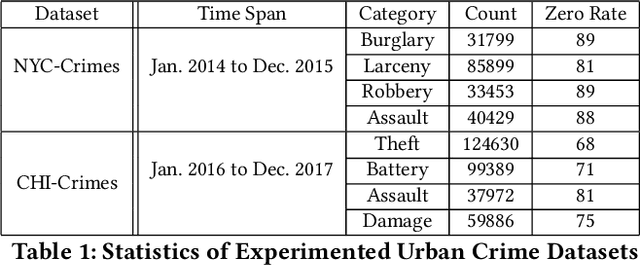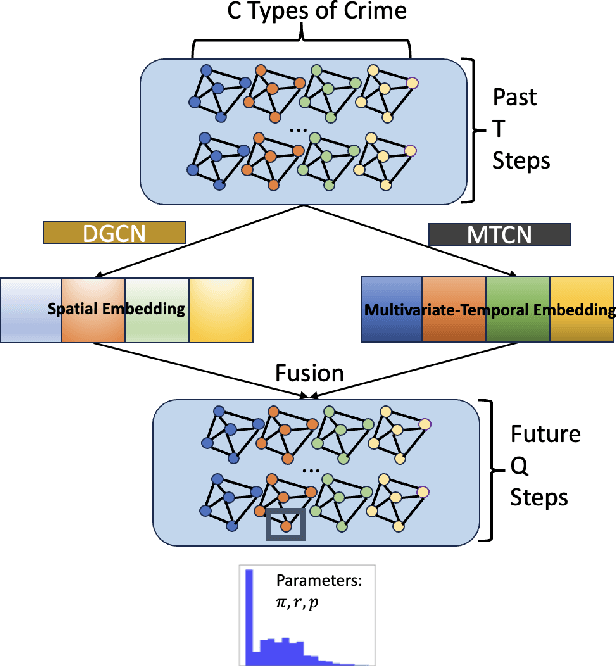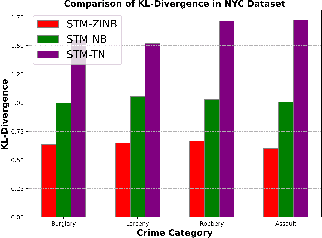Huajie Yang
Uncertainty-Aware Crime Prediction With Spatial Temporal Multivariate Graph Neural Networks
Aug 08, 2024



Abstract:Crime forecasting is a critical component of urban analysis and essential for stabilizing society today. Unlike other time series forecasting problems, crime incidents are sparse, particularly in small regions and within specific time periods. Traditional spatial-temporal deep learning models often struggle with this sparsity, as they typically cannot effectively handle the non-Gaussian nature of crime data, which is characterized by numerous zeros and over-dispersed patterns. To address these challenges, we introduce a novel approach termed Spatial Temporal Multivariate Zero-Inflated Negative Binomial Graph Neural Networks (STMGNN-ZINB). This framework leverages diffusion and convolution networks to analyze spatial, temporal, and multivariate correlations, enabling the parameterization of probabilistic distributions of crime incidents. By incorporating a Zero-Inflated Negative Binomial model, STMGNN-ZINB effectively manages the sparse nature of crime data, enhancing prediction accuracy and the precision of confidence intervals. Our evaluation on real-world datasets confirms that STMGNN-ZINB outperforms existing models, providing a more reliable tool for predicting and understanding crime dynamics.
 Add to Chrome
Add to Chrome Add to Firefox
Add to Firefox Add to Edge
Add to Edge